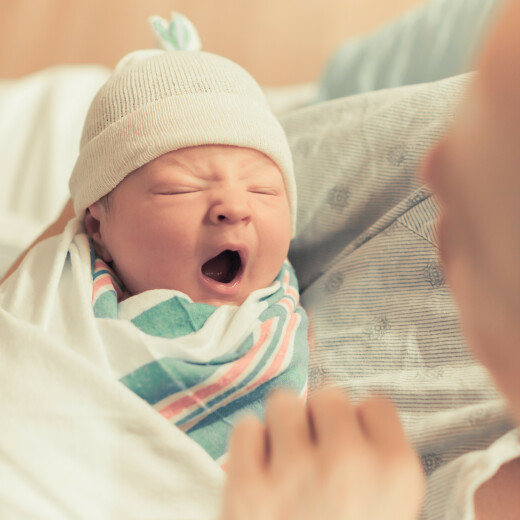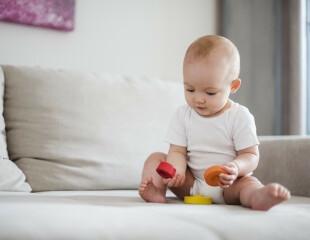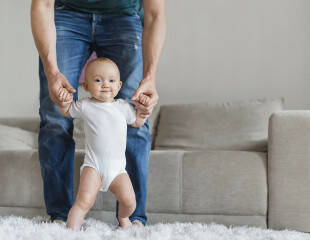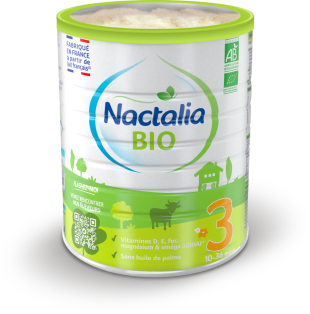
The evolution of baby’s sleep
Baby’s sleep is somewhat paradoxical: you will have the impression that your little one is sleeping all the time… apart from at night when you would really love them to. Don’t worry, their rhythm will slowly but surely become established and baby will sleep through the night at around 6 months!
Baby’s first months
Over the first few months, baby will spend most of their time sleeping: between 16 and 20 hours a day! Their needs are still very basic and they only wake up to drink milk. A typical day therefore consists of sleep cycles of 2 to 3 hours, interspaced with waking periods of approximately one hour. A newborn has the same biological clock as when they were in their mother’s womb. In other words, they do not distinguish between night and day. In order for baby to sleep through, you need to help them disassociate these two periods. To achieve this, associate the night with silence and darkness by whispering and by using dimmed lighting. Inversely, associate the day with noise and light: go about your usual daily chores and activities even when baby is asleep (such as putting on a load of washing or watching the TV) and avoid complete darkness. An ideal solution is to put baby to sleep in their bed at night and in another cradle during the day.
Swaddling
If your newborn finds it difficult to go to sleep during the first 3 months, try swaddling them. Swaddling consists of wrapping them in a blanket or fabric in such a way that only their head remains mobile. This position reminds them of being in their mother’s womb and makes it easier for them to go to sleep.
Ages 6 to 12 months
At 10 months, 90% of babies sleep through the night (in other words, sleep between 5 and 6 hours in a row) and continue to nap 2 or 3 times during the day. However, this period goes hand-in-hand with growth spurts as well as with separation trauma during the 8th month. A baby with an established rhythm may now refuse to go to bed. The only thing to do is to introduce a bedtime routine which will reassure baby. A bath, a massage, a nursery rhyme, a lullaby… choose an activity that baby likes, but which is not too restrictive for you! Because they may ask for it in the middle of the night.

The perfect bedroom
To ensure that baby benefits from long, restful sleep, several factors need to be taken into consideration. The room should be aired regularly and the temperature kept at between 19 and 21°C. The bed should have a firm mattress and should be free of other fittings: no cover, no pillow, no bed-surround and no oversize soft toy which may expose baby to a risk of asphyxia. Finally, dress baby in clothes that are suitable for sleeping in and reflect the season and make sure that their nappy is always clean!
After 12 months
Between 1 and 3 years, baby progressively develops their adult rhythm. The morning nap disappears and their afternoon nap becomes slightly longer to reflect their new physiological needs. A rest is not compulsory however! If your child refuses, don’t force them, they will simply go to bed earlier. Inversely, naps should not last more than 3 hours: wake them gently after this time.









